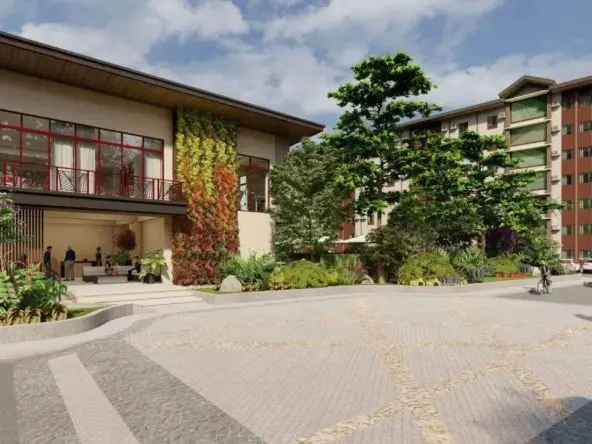Thinking about the safety and comfort of your loved ones when you own a condominium Philippines makes it seem like a dream come true. Nevertheless, the benefits and burdens of Filipino condo investment are not mutually exclusive. In point of fact, owning a starter condo comes with an endless list of duties. It is your responsibility as a citizen, for one thing, to be aware of the levies and fees that come with compact living.
Establishing a permanent personal property in the Philippines requires a yearly outlay of funds known as the Real Property Tax.
Grasping the Concept of Real Property Taxes
To help pay for essential public services, local governments receive a yearly levy on real estate known as the Real Property Tax (RPT), often called locally as amilyar. This is based on Republic Act No. 7160, which is the Local Government Code.
Even those without expertise in property assessment will find the process of determining their tax liability to be surprisingly straightforward. According to the Property Tax Bill, one may calculate it by multiplying the RPT rate by the assessed value of the property or your condo price Philippines. Metro Manila’s cities and municipalities are subject to a 2% property tax rate, while the provincial rate is one percent (1%).
A property’s assessed value, which is half of the RPT, is calculated by taking its fair market value, as stated in the tax declaration, and multiplying it by the assessment level, which may be found in the tax regulations of each city or municipality.
Homeowners’ Tips for Paying Property Tax Rates this 2024
Real property tax is levied on many types of properties. Anything from land to buildings to condos for sale to machines falls within this category. This levy property taxes must be paid by the property owner or its managers.
For first-time condo Philippines owners, here are a few important tips to remember when processing your property tax assessments:
A. Yearly Real Estate Tax Payment Due Dates and Discounts
Real property tax payments are typically due at the end of the first quarter of each year. When in doubt about their tax payable, property owners should contact the office of the local treasurer or visit the website of their LGU. The penalties may reach 25% of the overdue tax levied, therefore, it’s critical to pay on time to prevent them.
Here are some cities that have already announced their payment deadlines for property taxes in 2024:
Makati
The collection of RPTs will start on January 1 and continue until January 20. Those who pay in full before January 20, 2024, will get a 10% discount.
Second-quarter payments are due on April 20, third-quarter payments are due on July 20, and fourth-quarter payments are due on October 20.
For payments made in advance of each quarter’s deadline, the city offers a discount of 5%.
Parañaque
Annual RPT payments filed between January 1, 2024, and March 31, 2024, are eligible for a 10% reduction from the city of Parañaque.
Pasig
Pasig City announced that there will be 10% discount for full payment of property taxes accounted before January 31, 2024.
On the other hand, real estate property tax that have quarterly payments will be eligible with 5% discount. Here are the dates to be followed for quarterly payments of your real estate taxes:
- March 31, 2024 (1st Quarter)
- June 30, 2024 (2nd Quarter)
- September 30, 2024 (3rd Quarter)
- December 31, 2024 (4th Quarter)
Quezon City
In Quezon City, you can get 10% discount for your personal property taxes when you will pay it from January 1, 2024, to March 31, 2024.
You can pay your annual property tax in the City Treasurer’s Office (CTO) branches or their Satellite Offices. You can check below for the list of branches and satellite offices:
CTO Branches:
- Galas Branch
- La Loma Branch
- Marilag Branch
- Novaliches Branch
- Paligsahan Branch
- Quirino Highway
- Talipapa Branch
Satellite Offices:
- Ali Mall Cubao Satellite Office
- Cloverleaf Mall Satellite Office
- Eastwood Mall Satellite Office
- Fairview Terraces Mall Satellite Office
- Fisher Mall Satellite Office
- Robinsons Mall Galleria Satellite Office
- Robinsons Mall Magnolia Satellite Office
- Robinsons Mall Novaliches Satellite Office
- SM North Edsa Satellite Office
B. Things to Bring When Paying Your Amilyar
Ensure that you include all relevant paperwork pertaining to your real estate property when you pay for your amilyar. Here are a few items you’ll need to provide in order to pay your real estate taxes or amilyar:
- Previous Official Receipt of Tax Payment
- Property Title
- Tax Declaration Number
The accuracy and timeliness of tax declarations are the responsibility of the property owner. Do not delay in notifying the LGU assessor’s office of any changes in property ownership, improvements, or classifications. False tax assessments and fines could emerge from out-of-date tax assertions.
C. Real Estate Tax Payment Procedures in the Philippines
Here are the procedures you need to take while visiting the Treasurer’s Office of the LGU or any other authorized payment center when paying your amilyar:
Step 1. Get the necessary paperwork together if you’ve already made a payment. On the other hand, an original or certified copy of your property deed and tax identification number may be required for first-time payments.
Step 2. Head on over to the Assessor’s Office, Taxpayer’s Lounge, or any other window in your local government unit (LGU) that is specifically designed for calculating your property taxes.
Step 3. The exact amount of tax payable for your condominiums will then be given to you after the assessment.
Step 4. Pay the amount due and go to the billing area.
Step 5. Hold out for the receipt to serve as your proof of payment.
Many LGUs in the Philippines now accept real estate tax payments online, in addition to in-person visits to city or municipal halls. Online platforms authorized by the LGU make it easy for property owners to pay their taxes. By doing so, taxpayers may meet their tax obligations with less hassle and time spent physically visiting government offices.
D. Real Property Tax Installment Payment Option
You may pay your real property taxes in installments with several LGUs. This makes it possible for homeowners to spread out their tax payments throughout the year. You should know that this choice could have extra fees or interest and that it might come with certain constraints.
E. Real Estate Tax Penalties and Late Payment Fees
Philippine real estate taxes are subject to interest and penalties for late payments. Unpaid taxes may incur fines of up to 2% each month, however, these rates vary by LGU. A yearly interest rate of 12% to 24% is possible. You can avoid these needless financial constraints by having a timely payment of your tax obligations.
F. Real Estate Tax Amnesty in the Philippines
For a short time, local governments provide a tax relief program that lets people pay their overdue or inadequate real property taxes simultaneously or in installments. Generally with this, they don’t charge any fees or interest that has built up.
G. Real Property Tax Exemptions
According to the criteria laid down in Section 234 of the Local Government Code, Real property tax exemptions are available for certain types of properties. Some of them are the following:
- Real estate property owned by duly recorded cooperatives
- Organizations in the fields of education, charity, and religion
- Power generation and water distribution apparatus
- Lands held by the state
- Machines for preventing and controlling pollution and protecting the environment
Taxes aren’t popular, and even fewer people really understand them. Still, knowing these dues is crucial for Asterra condo owners like you to keep your investment secure since they are an integral part of property ownership.
Are you also looking for condominiums in the Philippines? Asterra is one of the newest and stylish condominium for sale in town that is not only close to the metro, but also built in an accessible and convenient location. This is perfect, especially for first-time condo investors who would like to explore the charm of vertical living.
Get the best value for money condo with Asterra and make your reservations now!





